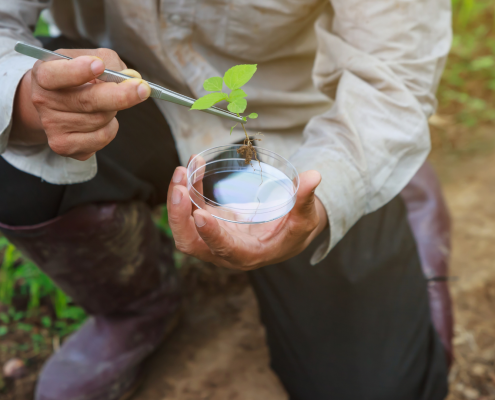Study of plant molecules could make food more nutritious for animals, better for planet
University of North Texas
A University of North Texas College of Science professor has moved researchers across the globe closer to understanding how to make condensed tannins in forage crops such as alfalfa, not only making food more nutritious for animals, but potentially improving food supply and limiting global warming.
Tannins are biomolecules that bind to proteins in the human and animal diet. This binding slows the rate of protein degradation in ruminant animals like cattle, sheep and goats, resulting in reduced methane emissions. Tannins are abundant in coffee, tea and wine, where they affect flavor and provide human health benefits, giving the research far-reaching applications.
A recent paper in Science Advances discusses the progress Richard Dixon, associate director of the BioDiscovery Institute at UNT. UNT researchers Ji Hyung Jun and Nan Lu, co-authors on his most recent paper, are looking to expand on the research with other crops.
Dixon said he is looking forward to seeing what future researchers do with the research he started. In many cases, his past breakthroughs have shown that the ways in which these complex molecules are formed are much more nuanced than anyone initially believed.
> Source: PHYS.ORG



 Credit: Canva @Monkey Business Images/CC0 Public Domain
Credit: Canva @Monkey Business Images/CC0 Public Domain Canva @ mgritchie /CC0 Public Domain
Canva @ mgritchie /CC0 Public Domain